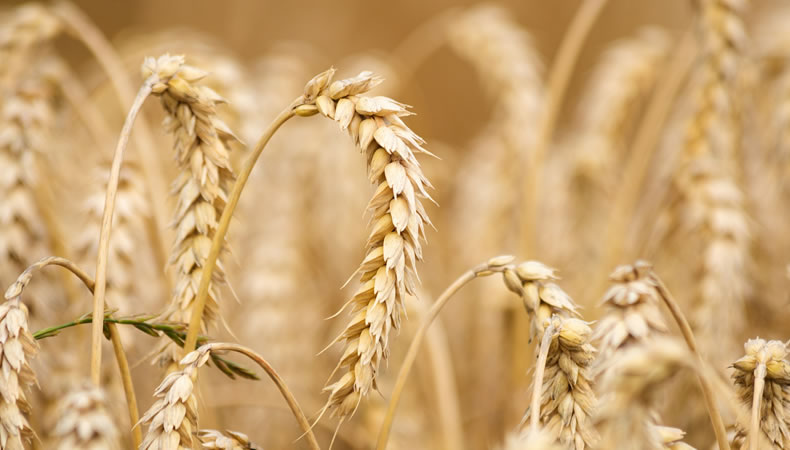Egypt is concerned about wheat availability as the Ukraine conflict worsens


Thousands of Russian troops have been stationed near the former Soviet republic’s border, raising concerns of a Russian invasion. Russia opposes Ukraine’s NATO membership and demands security guarantees from the West that Kyiv would not join the organization, a request that the US has turned down. During a phone meeting on Jan. 27, Egyptian Foreign Minister Sameh Shoukry and his US colleague Antony Blinken discussed the Ukrainian problem extensively.
According to the Egyptian Foreign Ministry, the two senior diplomats discussed several elements of Egypt-US bilateral ties, as well as sharing opinions and coordinating on a number of regional concerns. According to a statement from the US Department of State, Blinken and Shoukry discussed recent events in Ukraine as well as regional and bilateral concerns. According to the US Department of Agriculture, Russia and Ukraine are key players in the global grain market, with their wheat exports accounting for 23% of world commerce in 2021-22. Experts predict that the Ukrainian conflict will raise global wheat prices, putting Egypt, the world’s top wheat importer, under even more financial strain.
According to the Egyptian national statistics agency CAPMAS, Egypt imported roughly 12.9 million tons of wheat in 2020 at a cost of $3.2 billion. “Wheat imports from Ukraine and Russia to Egypt have had no influence so far,” Hussein Abo Saddam, the leader of the Egyptian Farmers Union, told Al-Monitor over the phone. “However, if the situation worsens, it would have a detrimental impact on Egypt, especially because Russia and Ukraine are the country’s two main wheat suppliers.”
Related Posts
Nearly 85% of Egypt’s wheat demand is met by wheat shipments from Russia and Ukraine. Egypt was the largest importer of Ukrainian wheat in 2020, acquiring almost 3 million tons, or about 14% of Ukraine’s total wheat crop. In 2020, Egypt will buy 8.9 million tons of wheat from Russia. According to the US Foreign Agricultural Service, Egypt’s wheat consumption in 2021-22 is expected to exceed 21.3 million tons, up about 2.4 percent from 2020-21.
Abo Egypt, according to Saddam, will not be affected by the Ukrainian issue in the immediate future, as the country prepares to harvest its wheat crop in April. “The local harvest delivers roughly 9 million tons of wheat to Egypt, which accounts for over half of the country’s wheat demands,” he said. The tension between Russia and Ukraine has already pushed up global wheat prices, which have risen by 7% on the Chicago Mercantile Exchange in the previous two weeks. Wheat futures in Europe increased by over 6%. “Due to rising worldwide wheat prices, the Egyptian government was compelled to raise the price of wheat for local farmers by 95 Egyptian pounds [$6] per bushel,” Abo Saddam stated.
Egyptian Finance Minister Mohamed Maait stated on Jan. 25 that the country’s public treasury had to spend an extra 12 billion pounds ($762.3 million) to buy wheat owing to a jump in global wheat prices. However, Ahmed Sheha, the former head of the Cairo Chamber of Commerce’s Importers Section, downplayed concerns regarding wheat supplies to Egypt. Sheha told Al-Monitor over the phone that Egypt’s wheat and other key commodity stockpiles are sufficient for up to six months, which will assist to mitigate any impact on Egypt’s wheat supply from the Russian-Ukrainian situation. “At this time, I don’t believe there will be any impact on Egypt’s wheat purchases from Ukraine or Russia.” Imports from Ukraine continue to flow into Egypt on a regular basis, with no interruptions,” he added.
Last week, Egypt’s Ministry of Supply and Internal Trade allayed fears that wheat deliveries might be disrupted, stating the country’s wheat stockpile would last more than 5.2 months. The ministry stated that it is doing all necessary to ensure that Egypt’s wheat demands are met, whether through local farmers or imports through international tenders. Egypt now has over 410 mills in the public, public/private, and private sectors. 82 percent extraction flour is produced by public mills and public/private mills, and it is utilized to make the subsidized bread.
In the event that the situation evolves into a military clash between Russia and Ukraine, Sheha said Egypt may still acquire wheat from India, Brazil, and other wheat-producing countries. Egypt’s largest wheat procurement agency, the General Authority for Supply Commodities (GASC), announced last month that it plans to acquire 55,000-60,000 tons of milling wheat for shipping in February and March. GASC Vice Chairman Ahmed Youssef said the agency was negotiating with Argentina, Australia, Bulgaria, France, Germany, Hungary, Kazakhstan, Latvia, Paraguay, Poland, Romania, Russia, Serbia, and Ukraine to purchase milling wheat shipments.







